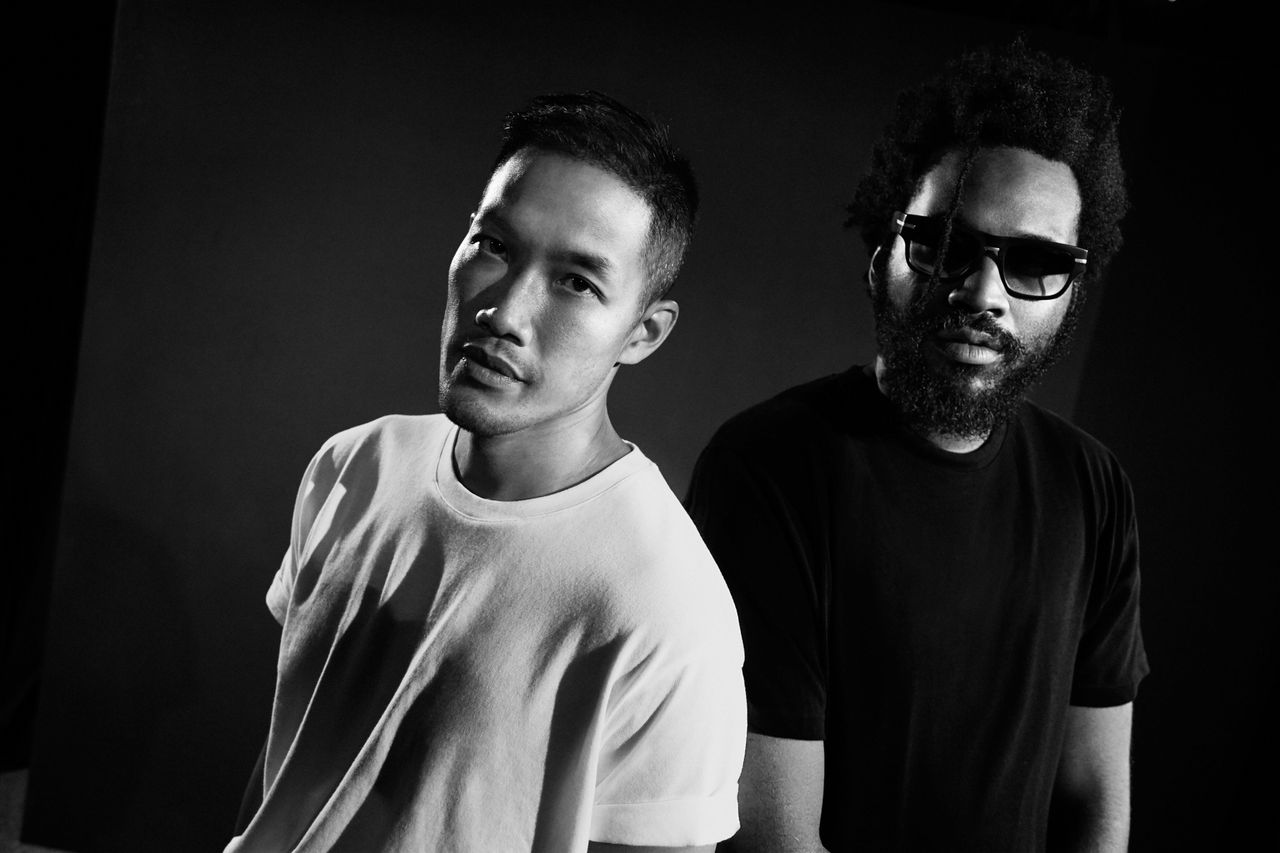“We prefer the term ‘social consciousness,’ to ‘sustainability’—that sounds too much like ‘eco; or ‘green’ marketing language.”
Dao-Yi Chow and Maxwell Osborne — the Public School New York design duo and CFDA + Lexus Fashion* Initiative 3.0 finalists — are re-thinking sustainability, and the future of their brand using dead stock materials and experiential marketing.
Designers Chow and Osborne, along with their strategic partner Alan Mak, have been an integral part of the ever-evolving menswear landscape since launching their PSNY brand in 2008. After taking a year off to reconfigure their business—shifting from a wholesale model to direct-to-consumer—the pair collaborated with Eileen Fisher’s ReNew program on a “zero-waste” collection of one-of-a-kind designs.
This interview was edited and condensed for clarity.
How does Public School define sustainability?
The main component of ‘social conciseness’ for us is that we’re not producing for the sake of producing. We’re finding ways to be more thoughtful about our impact and how to invest in our collective future. It goes beyond just creating a range of “sustainable” product. We’ve moved away from the wholesale model and interact directly with our consumers via web and on-site experiences.
What are you hoping to gain from participating in the CFDA + Lexus Fashion* Initiative?
We’re partnering with trade groups and other like-minded brands on raising awareness throughout the fashion industry. Many of the items in-store are our classic designs and a few carryover styles reimagined using dead stock fabrics — twill, bonded wool, shirting from Portugal, Alpha Industries materials from the 1970s.
What are Public School’s plans to revolutionize the fashion industry?
Experiences feed our purpose. Throwing events in the space, we see it not so much as just a store, but a store plus a gallery, a place for everyone to connect. We recently had a pop-up with Fun City tattoos, the oldest tattoo parlor in New York, and collaborated on an exclusive, co-branded capsule of hoodies and T-shirts. Continuing to find new ways to engage our customer is really important for us, as well as navigating fashion’s complex supply chain while valuing people, planet and profit holistically.



